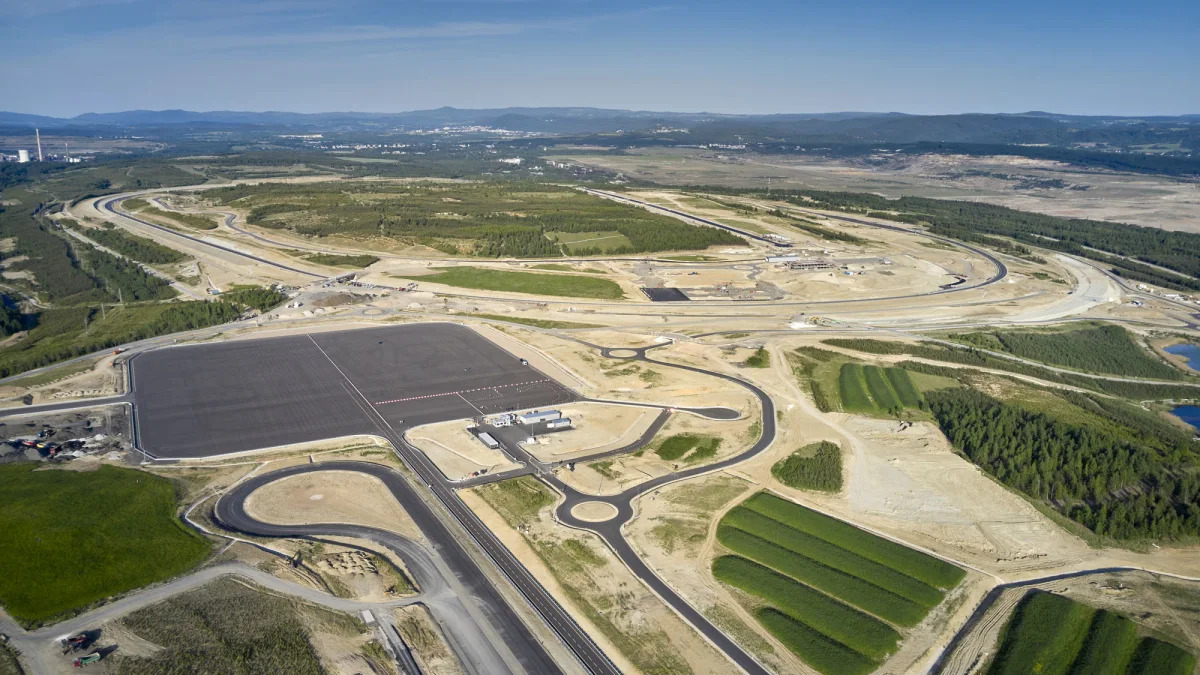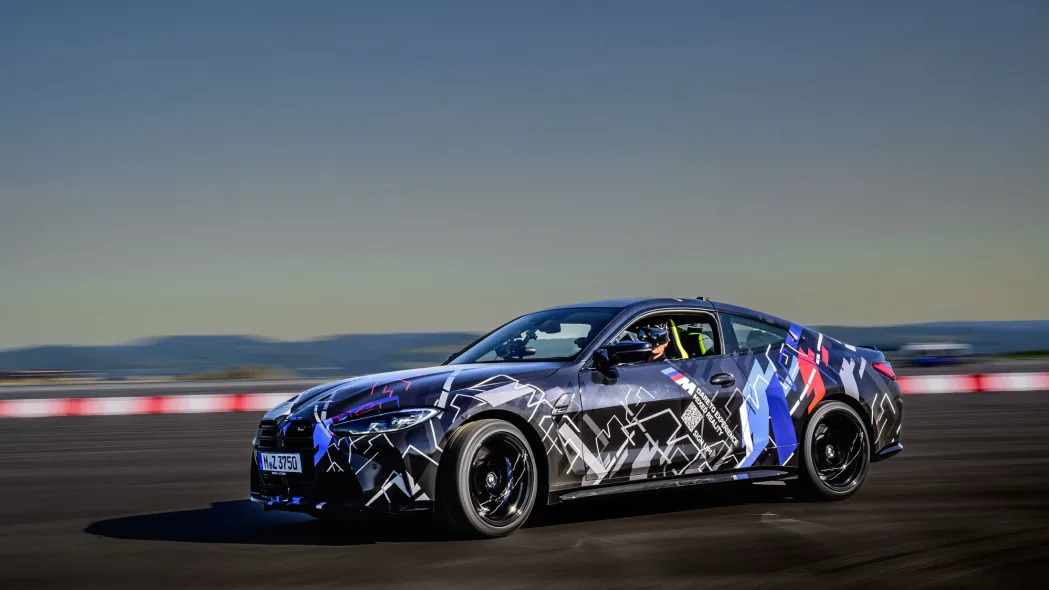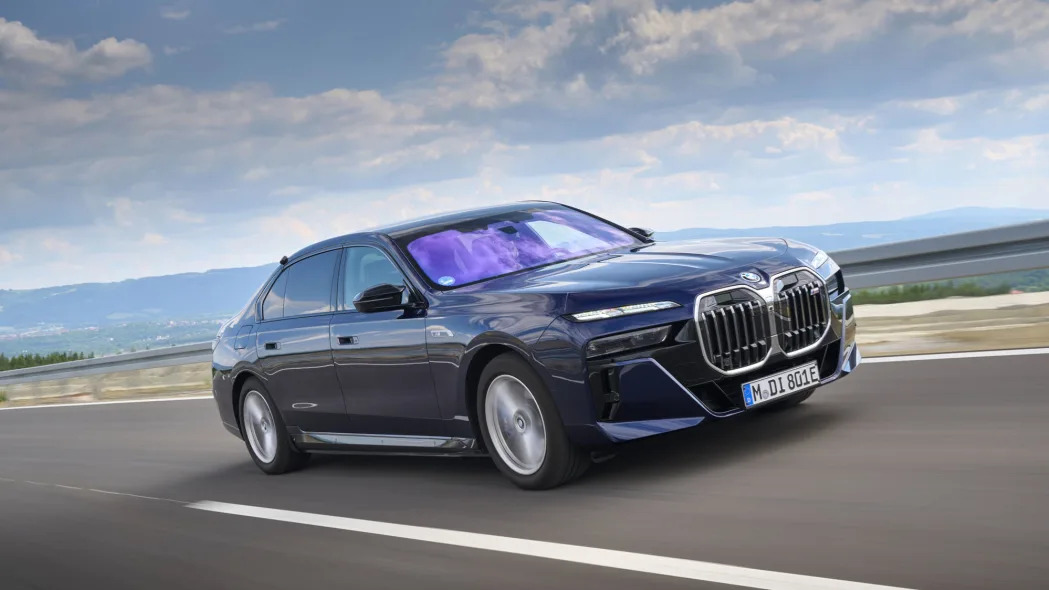The folks who live in the picturesque town of Sokolov in the Czech Republic have a new neighbor: BMW. The brand inaugurated what it calls its most modern test track in July 2023, and Autoblog got an early preview of the site as well as some of the technologies being tested there.
Andreas Heb, the man in charge of the Sokolov proving grounds, told me the project began in 2014. BMW executives looked at over 85 sites scattered all over Europe before choosing this town of roughly 25,000 people located a stone's throw from the border between Germany and the Czech Republic. The plot's proximity to Munich heavily influenced the company's decision: it takes about three and a half hours to drive from Sokolov to BMW's headquarters, though you can slash a great deal of time if you manage to hit the autobahn on a traffic-free day.
Starting with a 1,500-acre plot of land, BMW built about 62 miles of test tracks plus the facilities needed to run it. There's a bit of everything, including a high-speed oval, a miniature town, vastly different road surfaces with traffic signs from around the world, and a place to put autonomous cars through their paces. That's just the first phase: Heb pointed out BMW already plans to expand the site in the coming years.
Officially called the Future Mobility Development Center, the facility will help BMW develop some of the technologies that will trickle down to its cars in the coming years, including models based on the upcoming Neue Klasse architecture. It's more realistic and closer than it sounds.
Take the M Mixed Reality technology. One of BMW's engineers asked me to hop in an M4 Competition (hell yes!) and instructed me to put on a set of virtual reality (VR) goggles. "While driving?" "Certainly; trust me." Although the coupe was parked in a big, empty parking lot with no cones or lane markings, I found myself immersed in a video game as soon as I put on the goggles. Picture the Neo Bowser City track in Mario Kart 7 and you've got the right idea. I drove up to the starting line, waited for the light to turn green, and raced off. The course took me through several tunnels and around at least half a dozen turns, while the little gold coins that I collected along the way improved my score.
I could hear the 503-horsepower, twin-turbocharged straight-six, see the M4's instrument cluster, keep an eye on the steering wheel, use the shift paddles, and feel the coupe move as I raced around each turn — all of it was real. Only the environment I drove in was simulated.
What's the point? I don't have access to a big, empty parking lot to play real-life Mario Kart in, and odds are you don't, either. BMW explained this technology isn't aimed at private drivers; it won't show up on the M4's list of options in the near future. Instead, it's being developed as a powerful training tool. It can teach someone how to drive, it can teach someone who already has a driver's license how to handle a powerful car, or it can teach someone used to driving with 500-plus horses under the accelerator pedal how to become a better driver (or how to drift). It's far more realistic than a simulator, and it's safer than racing around an actual track (there's a second brake pedal in the passenger-side footwell). Development work is ongoing, but BMW will soon roll out this technology at its M Driving Academy in Maisach, near Munich.
It's not all fun and games in Sokolov, however. The brand is also using the proving grounds to fine-tune the Level 3 autonomous technology it plans to release in Germany either in late 2023 or in early 2024. Like other comparable systems, BMW's allows the driver to take both hands off the wheels and, crucially, both eyes off the road — I watched Scooby Doo on YouTube while a 7 Series-based prototype drove itself and even avoided an obstacle. The catch is that you can't sleep: the driver monitoring system knows if you're in the back seat snoozing.
Remote valet parking stands out as another feature that's more realistic than it might sound, though it's bad news for the valet industry. The idea is to create a network of call centers, so to speak, equipped to remotely take control of a car. After reaching your destination, you leave your car in a designated area and a remote operator parks it for you using what looks like an advanced video game simulator and BMW's existing surround-view camera system. The car's speed is limited when it's traveling in this mode; it moves at little more than a crawl.
BMW argues that remote valet parking can save a tremendous amount of money and time in the right applications, such as at airports or at big events. It's also looking at using the technology in its factories to drive cars off the assembly line and to a storage lot, for example.
These technologies (and others) will travel from Sokolov to Munich and to BMW dealers around the world in the coming years.








Sign in to post
Please sign in to leave a comment.
Continue